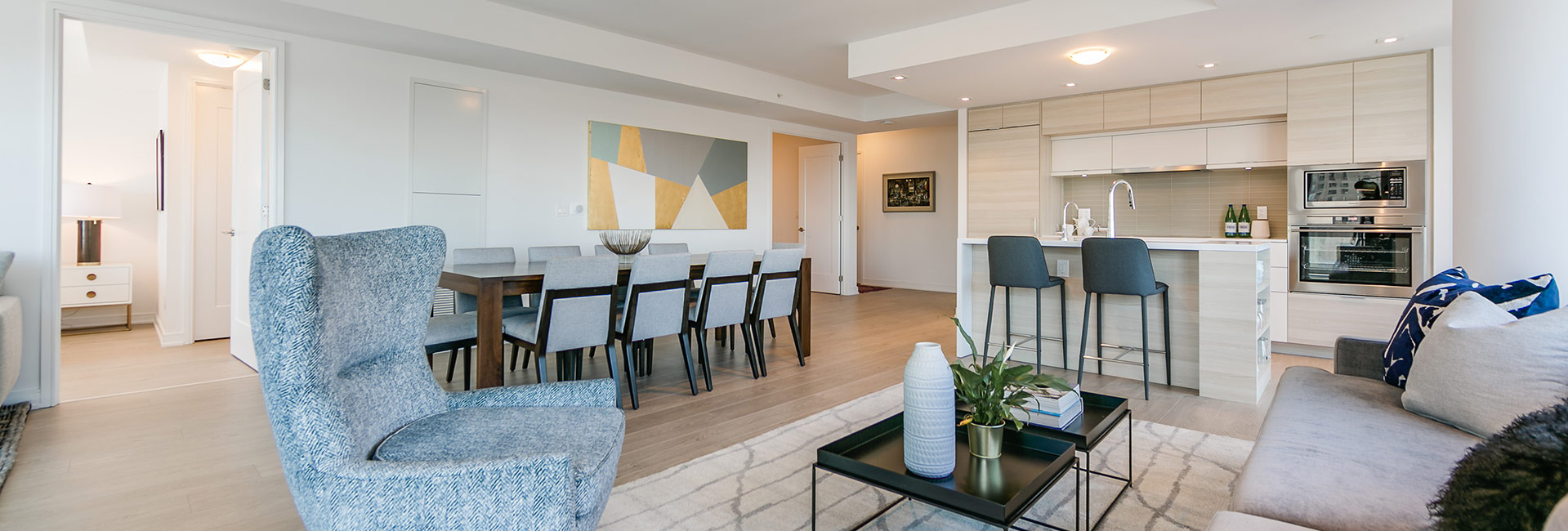NOVEMBER 2020: TORONTO REGION
The Toronto and area residential resale market continued its torrid pace in November, defying all expectations and forecasts. It wasn’t, however, homogenous in its performance, with different housing types and areas performing at dramatically different levels.
Overall, reported sales for the greater Toronto area were up a scorching 24.3 percent compared to November 2019. Last year, 7,054 residential properties were reported sold. This year that number jumped to 8,761. That number was driven primarily by the sale of ground-level properties, detached, semi-detached, and townhouse homes. Sales of these types of homes increased in both the City of Toronto and the 905 region, and correspondingly, so did average sale prices.
In November, the average sale price for all properties sold across the greater Toronto area came in at $955,615. This number was more than 13 percent higher than the $843,307 achieved in November of 2019. In the City of Toronto, the average sale price was even higher, coming in at $979,224. These numbers would have been even higher if not for the lagging performance of condominium apartment sales in the City of Toronto.
Once again, as in previous months, resale data indicates that market activity has shifted from the City of Toronto to the 905 region. The 905 region includes Halton, Peel, York, Durham, Dufferin, and Simcoe Counties. Of the 8,761 reported sales for the greater Toronto region, 5,729, or 65 percent, were in the 905 region. What we also witnessed in November was the average sales price gap between the City of Toronto and the 905 region is narrowing. For the third straight month, average sale price gains in the 905 region far outdistanced gains in the City of Toronto. The average price increase for all property types in the City of Toronto was 5.5 percent. In the 905 region the average sale price jumped by 14 percent. Even if condominium apartment sales were extracted from these numbers, gains in the 905 were at least double the average sale price gains in the City of Toronto.
Except for condominium apartment sales in the City of Toronto the entire resale marketplace continued to move at a torrid pace. In November, all sales across the greater Toronto area sold (on average) in only 19 days, 26 percent faster than the 24 days it took last year. The pace for semi-detached properties in the City of Toronto was even more hectic. All semi-detached properties sold in only 14 days. Toronto’s eastern districts, which include the popular Riverdale, Leslieville, and Beaches trading areas, saw semi-detached properties sold in only 11 days, and (on average) for 109 percent of their asking price. The average sale price for the combined eastern districts for semi-detached properties exceeded $1 million, with substantially higher average sale prices in the most popular neighbourhoods. Similar results were achieved in Toronto’s western districts. Because of higher price points, Toronto’s central district sales were a little slower (20 days) but still managed to achieve sales prices that were 102 percent of the asking price.
It should be noted that the high end of the market also put on a strong performance. Throughout the greater Toronto area, 356 properties with an average sale price of $2 million or more were reported sold in November. This compares with only 199 sold in the same category last year. On a year-to-date basis, 3,363 $2 million plus properties have been reported sold. Last year, at the end of November, 2,171 properties at this price point were reported sold. This year’s sales represent a 55 percent increase in high-end property sales compared to 2019.
If there is a dark spot in the greater Toronto resale marketplace it’s condominium apartment sales in the City of Toronto. In November, sales were flat, and average sale prices fell off by 3 percent. Unfortunately, that’s not the whole story. Inventory levels are increasing dramatically. In November, 2,943 new condominium apartments came to market (some of these were no doubt new listings of units that hadn’t sold and were being re-introduced to the market, often at lower asking prices). Last year, only 1,629 new listings came to market. November’s new listings increased the total number of active listings to 5,018, 194 percent higher than the 1,707 condominium apartments available to buyers at the same time last year.
On a more positive note, by the end of November, year-to-date, 88,026 properties (all types) were reported sold for the greater Toronto area. Total sales for 2019 were only 87,753. Notwithstanding the pandemic, and its negative impact on our society, our businesses, and our health and safety, with December still to be counted, 2020 will be the Toronto and area’s best year for resale house sales since 2016. Astonishing.
PREPARED BY:
Chris Kapches, LLB, President and CEO, Broker
CHESTNUT PARK REAL ESTATE LIMITED, BROKERAGE | CHESTNUTPARK.COM










